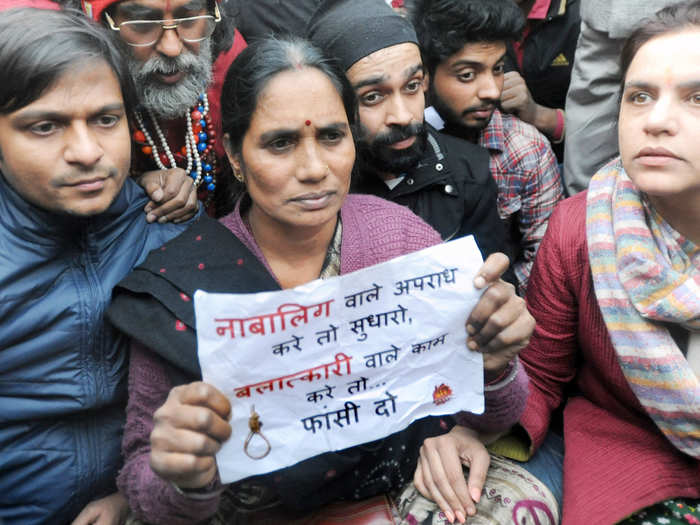
Justice NV RamanaBCCL

The four convicts in the 2012 Delhi gang rape and murder case — Akshay Thakur, Mukesh Singh, Vinay Sharma and Pawan Gupta — were hanged in Tihar Jail on 20 March 2020.
However, right before their execution, the counsel for Gupta made a last-minute attempt to save them by moving the Supreme Court with a curative petition.
However, the bench led by NV Ramana rejected the petition paving the way for the hanging. “It may have taken time but justice was finally delivered,” Nirbhaya’s mother, Asha Devi, told the press.

According to Ramana, the Right to Information (RTI) Act should not be used as a tool of surveillance against the judiciary. But, in a 2019 verdict, he upheld that the office of the CJI is a public authority and thereby it falls within the ambit of the Right to Information (RTI) Act.
This means that the CJI’s office is accountable under the RTI to provide information sought in public interest.

In January 2020, the Supreme Court bench led Justice Ramana made it mandatory for the Central Government to publish each and every of its orders, which authorised restricting access to the internet following the abrogation of Article 270.
According to him, the indefinite ban on the internet crippled the fundamental freedoms of over 7 million people within Kashmir. Not only was the ban in violation of the telecom rules, but it stepped on the fundamental rights of freedom of speech and expression granted by the Indian Constitution.
The internet, at the time, had been suspended for more than 150 days in Kashmir. This was the longest internet blackout in any democracy around the globe. Ramana, along with Justices R. Subash Redy and BR Gavai, ruled that the freedom of speech and expression includes the right to receive and disseminate information as offered by the internet.

During a case about insurance compensation in January earlier this year, a bench led by Justice Ramana, took a stand against patriarchy. According to him, a woman’s work at home is equal to a man’s work in office.
The bench ruled that the notional income of homemakers must be calculated and quantified on the basis of the work they do. The contribution must take into account the “work, labour, and sacrifices,” that they put it.

The Tenth Schedule is an anti-defection law to keep elected officials from shifting allegiance to a different party once they come into power. The speaker of the house has the power to disqualify such members, which is what happened in Karnataka.
The controversy then emerged on whether or not these individuals would be allowed to fight for their seat during a by-poll election. The Supreme Court bench led by Justice Ramana ruled that while such Members of the Legislative Assembly (MLAs) are allowed to contest the by-polls, it may be time to reconsider strengthening certain aspects of the Tenth Schedule.
He stated that political parties were horse-trading their members and partisan speakers were denying citizens a stable government.

Ramana bowed out of being a part of the committee looking into sexual harassment allegations against CJI Bobde in 2019. In his letter to the Supreme Court, he stated that he was opting out from being a part of the panel because an affidavit was filed — by an ex-Supreme Court employee — raising concerns about his impartiality.
Even though he ‘categorically’ rejected the complaint, Ramana did not want to raise questions to be raised against the judiciary as an institution.

According to Andhra Pradesh Chief Minister Jagan Mohan Reddy, Ramana influenced the sitting of the state’s High Court. Reddy cited that Telugu Desam Party (TDP) were the beneficiaries to two important judgements. And, in those cases, Ramana was a legal adviser and the additional advocate-general during the Chandrababu Naidu-era.
Reddy’s allegations came in after the Supreme Court bench headed by Ramana ordered proceedings against the Chief Minister in a disproportionate assets case.
 Global stocks rally even as Sensex, Nifty fall sharply on Friday
Global stocks rally even as Sensex, Nifty fall sharply on Friday
 In second consecutive week of decline, forex kitty drops $2.28 bn to $640.33 bn
In second consecutive week of decline, forex kitty drops $2.28 bn to $640.33 bn
 SBI Life Q4 profit rises 4% to ₹811 crore
SBI Life Q4 profit rises 4% to ₹811 crore

Copyright © 2024. Times Internet Limited. All rights reserved.For reprint rights. Times Syndication Service.